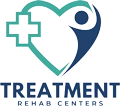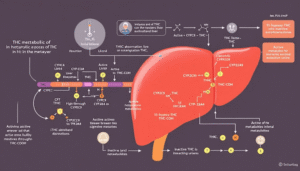Watching someone you love struggle with addiction is tough. You may wonder if forcing them into rehab is the answer to turn their life around. Involuntary rehab is a tricky thing, with legal, ethical and emotional implications.
But can you force someone into rehab should the need arise, and how is it done properly?
This blog post from our team at TreamentRehabCenters.org will look at whether you can force someone into treatment, how well it works and other ways to help someone who won’t seek help.
What Does “Forcing Someone Into Rehab” Mean?
Forcing someone into rehab means enrolling them in a substance use treatment program against their will due to drug or alcohol abuse.
This can happen through court orders, family interventions, or state-mandated treatment laws, often called involuntary commitment laws.
Legal Reasons for Involuntary Rehab
In many states, there are laws that require rehab if someone is a danger to themselves or others due to their substance use. These laws are often used in cases of severe addiction where the person is unable or unwilling to seek help voluntarily.
However, the laws vary widely from state to state and the legal process for involuntary addiction treatment can be complicated and vary greatly.
Can You Legally Force Someone Into Rehab?

Yes. In certain circumstances treatment can be mandated, but it depends on local laws and the person’s situation.
Involuntary Commitment Laws
Many states in the U.S. have laws that allow family members, healthcare professionals, or legal representatives to petition a court to force rehab for an alcohol or substance use disorder. These laws require:
- Proof the individual is a danger to themselves or others and can’t take care of their basic needs.
- Proof the person can’t make sound decisions about their health due to their addiction.
- A formal hearing where the individual can contest the petition.
States with Involuntary Commitment Laws
Some of the most well-known laws are:
- Florida’s Marchman Act: Family members or law enforcement can petition the court to order substance abuse treatment for someone who is a danger to themselves or others.
- Kentucky’s Casey’s Law: Similar to the Marchman Act, families can petition for court-ordered rehab for a loved one as a part of this involuntary treatment act.
- California’s Conservatorship Laws: For people with severe substance use disorders the state can appoint a conservator to make decisions for them including forcing treatment.
Court Ordered Rehab
For people facing charges related to their addiction, a court may offer rehab as an alternative to jail, as well as drug court supervision.
This type of rehab is often part of a plea deal or in the terms of probation regarding addiction treatment.
Does Forced Rehab work?
Involuntary alcohol and drug rehab, especially regarding inpatient treatment, is a hot topic among addiction professionals. This is because some people benefit from forced treatment, while others don’t achieve long-term recovery.
The Case for Forced Rehab
- Breaking the cycle: Involuntary treatment can get someone detoxed and started in recovery in a safe environment.
- Time to think: Forced rehab can get someone away from toxic people and places and give them time to reflect on their addiction.
- Reduced immediate risks: For someone at risk of overdose or other life-threatening consequences forced treatment can be a lifesaving intervention. In cases of overdose immediate intervention by police and first responders is key and forced rehab can start the process of evaluation and treatment.
The Case Against Forced Rehab
- Lack of motivation: Recovery requires a willingness to change. Without personal motivation the individual may not engage in treatment effectively. Addiction can also lead to other mental health disorders like depression and anxiety that can overwhelm the individual and make it harder for them to seek help and engage in treatment.
- Temporary results: Studies show individuals forced into treatment may relapse more often than those who go in voluntarily.
- Ethical concerns: Critics say involuntary rehab violates personal freedoms and autonomy.
How to Help Someone Who Won’t Go to Rehab

If forcing someone into rehab isn’t an option or if you’re looking for alternatives there are ways to get a loved one to treatment without forcing them.
1. Educate Yourself About Addiction
Understanding addiction as a disease, not a moral failing will help you approach the situation with empathy and knowledge. Learn about the physical, psychological, and social factors that contribute to substance use and drug abuse.
2. Have a Real Conversation
Talk to your loved one with compassion and honesty. Don’t judge or blame and focus on expressing concern for their health. For example:
- Instead of saying, “You’re destroying your life,” try, “I’m concerned about how your drinking is affecting your health.”
3. Consider an Intervention
A staged intervention can be a powerful way to express concerns and get treatment. Having a professional interventionist involved can help guide the conversation and increase success especially when considering alcohol rehab or drug rehab.
Part of this stage can be an emergency substance abuse evaluation for the loved one or family member, so that should they choose to seek treatment, a facility can be ready and waiting to accept them.
4. Look into Family Therapy
Family dynamics are a big part of addiction. Doing family therapy can help address enabling, improve communication, and support your loved one’s recovery.
5. Research Treatment Options Together
Help your loved one feel more comfortable about getting treatment by researching programs together. Discuss options that fit their preferences like outpatient programs or holistic approaches.
Alternatives to Forced Rehab

Getting addiction treatment may seem like the only option but other ways to recovery don’t involve coercion.
Motivational Interviewing
This type of therapy helps individuals explore their ambivalence about change and develop their own motivation to get into recovery. A trained therapist guides the person through a non-confrontational conversation, emphasizing the importance of voluntary treatment.
Harm Reduction Programs
For those using drugs or alcohol and not willing to go to rehab, harm reduction programs can reduce the risks associated with substance use. Examples are needle exchange programs, naloxone distribution, and supervised consumption sites to help prevent drug overdose.
Peer Support Groups
Groups like Alcoholics Anonymous (AA) or SMART Recovery are a safe space for individuals struggling with addiction. These groups can be an entry point for someone who’s not ready for formal treatment.
Family Support in Recovery

Supporting a loved one with a substance use disorder is tough but your involvement can make a big difference in their recovery. Here are some tips to be a good source of support:
- Set Healthy Boundaries: Don’t enable by providing money or covering up the consequences of their substance use.
- Celebrate Small Wins: Acknowledge even the smallest steps towards recovery to build confidence and motivation.
- Take Care of Yourself: Get support through therapy or support groups for families of individuals with addiction like Al-Anon.
When Is Forced Rehab Necessary?
Forced rehab may be necessary when someone’s addiction is posing immediate and severe risks such as:
- Chronic homelessness due to substance use.
- Repeated overdoses or life-threatening health conditions.
- Criminal behavior related to addiction.
If you’re not sure if forced rehab is an option, talk to an addiction specialist or attorney to discuss your options.
Forcing someone to go to rehab should be a last resort as it can damage relationships and not address the individual’s willingness to get help.
Involuntary Substance Abuse Treatment Can Be a Lifesaver

Forcing someone into rehab is as much about legality as it is about efficacy. Involuntary treatment is an option in some cases but long-term recovery is most successful when the individual is motivated to change.
As a loved one your role is to support, provide resources, and encourage them to take the first step towards recovery – whether it’s voluntary or mandated.
Addiction is tough but with persistence, compassion and the right tools addiction treatment and recovery is always possible.
If your loved one is struggling and in danger, please call our caring team for support today. All calls are confidential, and we provide expert guidance and no obligation options for treatment.











